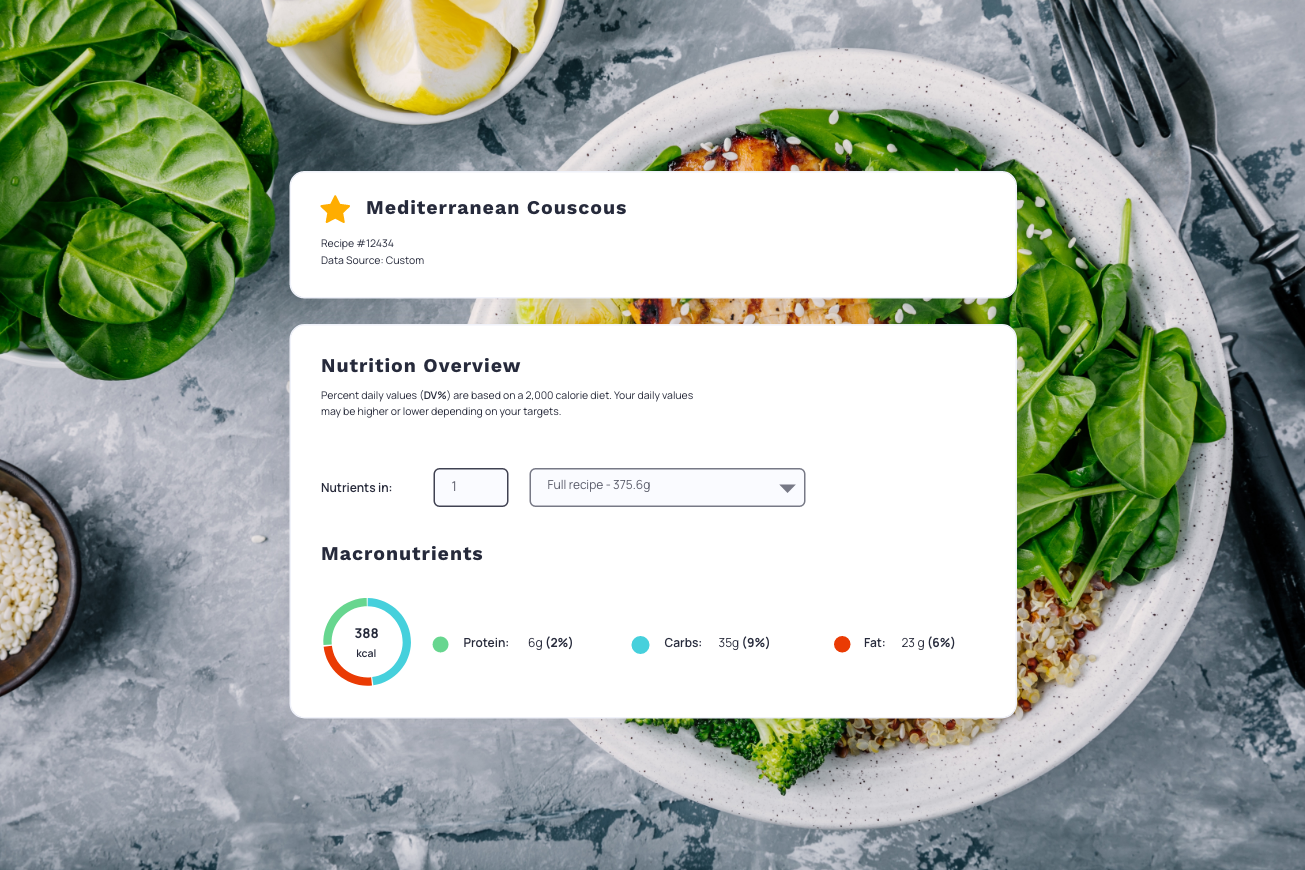Recent Cronometer research has indicated that up to 90% of our users aren’t taking advantage of our Custom Recipe functionality – 🤯.
If you’re among those users, we’re here to tell you why Custom Recipes are the way of your future! Read on to discover several hacks to make logging your meals into Cronometer easier than ever.
What's A Custom Recipe?
Custom Recipes allow you to save a combination of ingredients as one entry so you can log it to your diary in just a few taps. Recipes are super handy for more complicated meals that include several serving sizes or more advanced features.
When To Use Custom Recipes Or Custom Meals
Custom Recipes should be used when cooking and wanting to track an entire recipe, such as a casserole, where there may be several servings within one recipe. Recipes also include more advanced features like the ability to ‘set cooked recipe weight’, and add tags, and categories.
Gold users can use the Recipe Importer to do this extra quick!
Custom Meals are a simplified version of Custom Recipes, so use this feature when you simply just want to bundle items together to make logging faster.
How To Create A Custom Recipe
You can create a Custom Recipe from the Foods tab in either the mobile or web app. Check the user manual article for detailed instructions – click here for web or click here for mobile.
Gold subscribers can also multi-select ingredients in their diary and create a recipe from that selection using the three dot menu in the top right corner of the diary page.
Adding Recipes To Your Diary
Add the recipe to your diary the way you would any other food entry. Start adding a food and search for the name of the recipe.
While searching for the food, you can tap over to the ‘Custom’ category tab, which will filter the food search database to only your Custom Foods, Custom Recipes and Custom Meals.
Explode A Recipe
Once a recipe has been added to your diary, you can explode it which will create individual food entries for each ingredient in the recipe with the correct measurements. On mobile, swipe right on the recipe and tap the ⋮ icon or on web, right-click on the recipe then select ‘Explode Recipe’.
By exploding a recipe, you can easily adjust measurements for individual ingredients or delete an ingredient altogether. Making changes to ingredients after you’ve exploded a recipe will not alter the recipe itself.
Why You Should Use Recipes
The biggest benefit is that it saves you time! You’ll no longer have to log each ingredient separately and it’ll take most of the guess work out of serving sizes and correct measurements.
You’ll also be able to see the nutritional breakdown of the recipe as a whole and for a serving size so you’ll be better informed of what’s included in that meal.
Gold Users Create Recipes Faster
Create recipes in record speed with our Recipe Importer! Gold subscribers get access to a feature which allows you to create a Custom Recipe by copying and pasting a URL from your favourite recipe site.
Gold users also have the ability to multi-select items that are already added to their Diary and create a recipe from that selection. From your Diary screen, click the three dot menu in the upper right, select ‘multi-select’, choose all of the food entries you want included in the recipe, click the three dot menu again and select ‘create recipe from selection’.
Need some more reasons to go gold? Click here.




